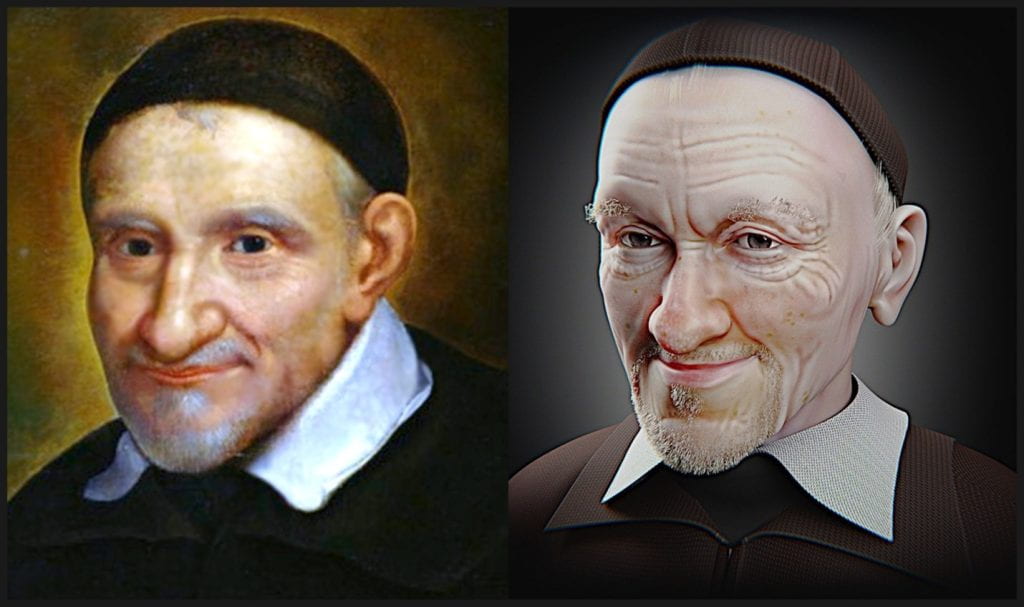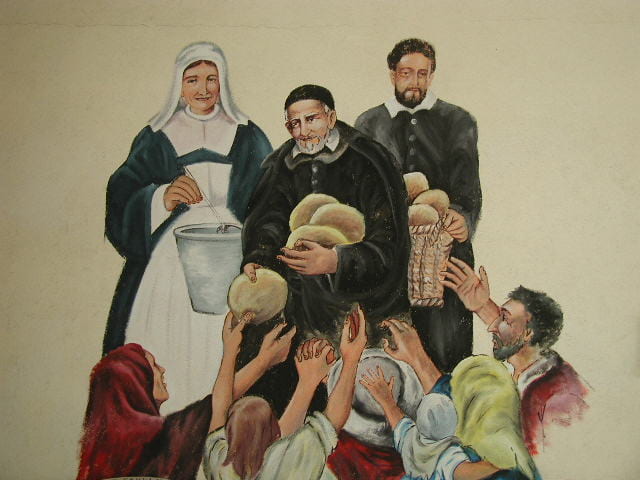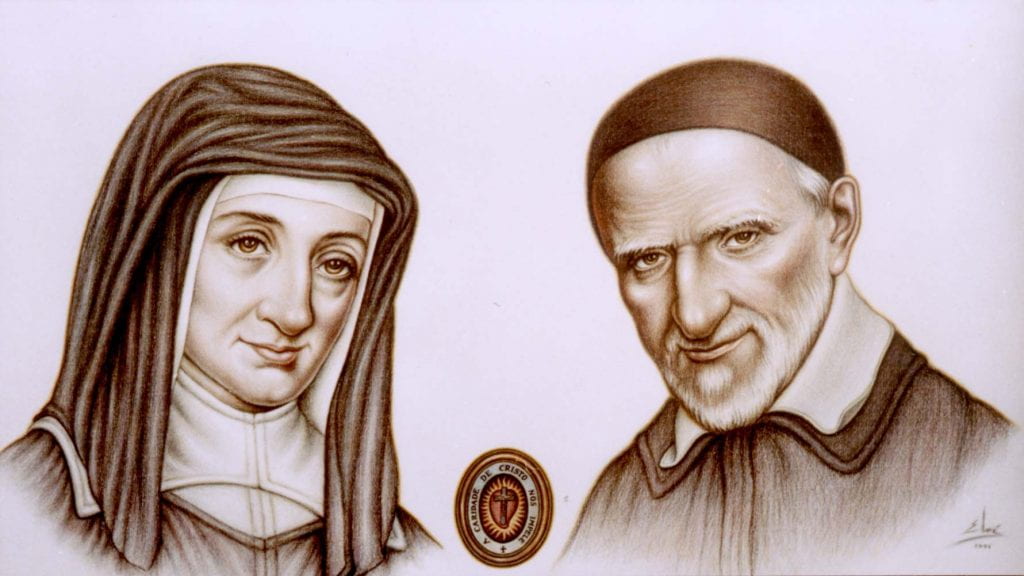Thinking of notable people in history—past or present—as human beings who lived normal daily lives is sometimes difficult. But doing so helps contextualize our perceptions of them and can often make their actions, ideas, and lives all the more exemplary. For example, during grad school when I was reading particularly dense texts from French or German philosophers, I would sometimes muse over the fact that, despite all their abstract thought, they had to eat lunch at some point. Even the most cerebral, abstract thinkers were embodied beings that probably stubbed their toes, had their favorite foods, were late to work, enjoyed friendships, learned about the news, suffered allergies, needed a drink, endured frustrations, and lived life like the rest of us. There’s a beauty in that, which is both humbling and elevating. Even the small things matter in making the mosaic of a person.
Vincent de Paul was no different; he, and we who follow him, recognize our individual embodiment and the dignity of each person’s life (together, these two forms of recognition are known as personalism). While he was highly educated and incredibly intelligent, his passion and mission were not in abstract theology and philosophy. His mission was to be part of the world, attending not just to his fellows’ spiritual needs, but to their practical needs as well. Like the Daughters of Charity, who uplifted the dignity of those experiencing poverty, Vincent was focused on each person’s lived experience. Vincent saw life not as an abstract riddle to be deciphered, but as something to be experienced with joy, sorrow, compassion, and wonder. He saw people not as objects to be analyzed, but as human beings to be encountered with a sacred dignity of their own.
Even knowing all of this, it can still be challenging to think about Vincent, the person, without turning him into a concept or a legendary figure to ponder. It doesn’t help that many of our images of him are quite sanitized, often with him holding three orphans in each hand (even though we’re not entirely sure he ever directly cared for babies). Though stunningly beautiful, old oil paintings and white stone sculptures tend toward idealization as well. So how can we separate the history from the myth? How can we better see Vincent as a human being who ate meals, sweated, and walked the Parisian streets? Brazilian researchers might have an answer.
Since 2015, José Luís Lira and Cícero Costa Moraes’s team of ten researchers, including experts in medicine, dentistry, and technology, have been working on a digital facial reconstruction project to see what Vincent de Paul may have actually looked like. This spring they completed the project, which included extensive skull scans, as well as anthropological and structural analysis. You can find the results of their work below. The digital rendering is startling and can take a while to get used to, especially when compared to other depictions of Vincent. The rendering will not speak to all, and it can be argued that it’s just one more kind of media representation. But I do think that it offers a different way of seeing Vincent, not just as a revered saint but as a human being, and perhaps as he saw himself.
Reflection Questions:
- Does the digital rendering change your idea of Vincent? In what way?
- Is it easier to show compassion to the idea of a person, rather than to the reality of one?
- In our daily professional lives at DePaul, how can we keep Vincent’s mission of recognizing personal dignity and being aware of the whole person alive and thriving?
You can find an English-language article about the reconstruction here: https://famvin.org/en/2022/03/07/reconstruction-of-the-face-of-saint-vincent-de-paul/
The project document in its original Portuguese can be found here:
http://ortogonline.com/doc/pt_br/OrtogOnLineMag/4/VicenteDePaulo.html
Reflection by: Alex Perry, Program Manager, Division of Mission and Ministry
Vincentian Heritage Week is Coming!
We are looking forward to celebrating with the entire DePaul community on Friday, September 30, with our annual Vincentian Heritage Prayer Breakfast. This year, we welcome new DePaul University President Dr. Robert L. Manuel, who will speak about his vision of the Vincentian spirit and its impact in these complex, uncertain times.
It should be a great chance to meet the new president and start DePaul’s 125th year in community, gathered together for the sake of a mission. All are welcome!
Register here: https://vhw-breakfast-2022.eventbrite.com
If you’d like to engage more with our Vincentian heritage, please save the date for Vincentian Heritage Week, focused around Vincent’s feast day on September 27. We will be hosting breakfasts, lunches, Vinny Fests (in the Loop and Lincoln Park), and more! More information can be found here.










